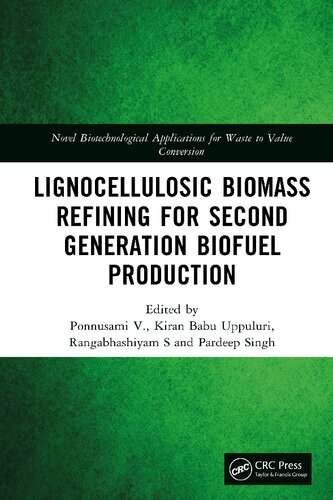

Most ebook files are in PDF format, so you can easily read them using various software such as Foxit Reader or directly on the Google Chrome browser.
Some ebook files are released by publishers in other formats such as .awz, .mobi, .epub, .fb2, etc. You may need to install specific software to read these formats on mobile/PC, such as Calibre.
Please read the tutorial at this link: https://ebookbell.com/faq
We offer FREE conversion to the popular formats you request; however, this may take some time. Therefore, right after payment, please email us, and we will try to provide the service as quickly as possible.
For some exceptional file formats or broken links (if any), please refrain from opening any disputes. Instead, email us first, and we will try to assist within a maximum of 6 hours.
EbookBell Team

4.7
66 reviewsThis book compiles research aspects of second-generation (2G) biofuel production derived specifically from lignocellulose biomass using biorefinery methods. It focuses on the valorization of different sources of 2G biofuels and their relative importance. The constituents of lignocelluloses and their potential characteristics different methods of treating lignocellulose, various means of lignocellulose bioconversion, and biofuel production strategies are discussed.
Features:
This book is aimed at researchers and professionals in renewable energy, biofuel, bioethanol, lignocellulose conversion, fermentation, and chemical engineering.